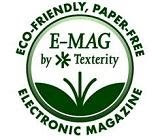

While countless words are published about the environment in honor of Earth Day this week, it's time for the publishing industry to confront its involvement in an egregious, and rather bizarre, form of greenwashing.
I'm talking about touting Web content and digital editions as being environmentally friendly and disparaging ink-on-paper editions, which are still the major source of revenue for most traditional publishers. For example, one magazine's Web site recently admonished readers to reduce their carbon footprint by signing up for a digital edition -- right next to an article about the huge amounts of electricity that Web servers gobble up.
But the worst offenders are the vendors of digital-publication software, such as Nxtbook, Texterity, and Zinio.
"When you publish with Nxtbook Media, you're making a very green decision -- one that's good for both the bottom line and the environment," says the Nxtbook Web site without providing any data or justification for its questionable environmental claim.
Fortunately, Don Carli, the Godfather of Green Media, played the role of Bovine Fecal Matter Police in an excellent interview recently with Metaprinter:
"When subjected to 'cradle-to-cradle' lifecycle analysis, e-reading is not nearly as green as many naively assume it is," says Carli, founder of the Institute for Sustainable Communication. "Computers, eReaders, and cell phones don't grow on trees, and their spiraling requirement for energy is unsustainable."
Computers and other electronic equipment require various metals and petro-chemicals in the manufacturing process, electricity (often coal-powered) to live, and "at the end of their all-too-short useful lives . . . become the single largest stream of toxic waste created by man," says Carli. In contrast, "much of print media is based on comparatively benign and renewable materials."
I should note that Amazon and Sony seem to have had the good sense not to claim that their e-book readers are an environmentally friendly choice. Not so with the publishing-industry vendors who create editions of publications that can be read on computers.
So I now have the honor of presenting Dead Tree Edition's Greenwashing in Media Award jointly to Nxtbook, Texterity, and Zinio.
As punishment, their executives should be forced to use their own company's digital-edition software to read an entire digital facsimile of a magazine on a small laptop computer. Trying to read something that is taller than wide on a device that is wider than tall is a truly painful experience.
3 comments:
Thanks for the attribution. Greenwashing is big problem in many circles of commerce because the masses are only marginally knowledgeable about what exactly goes into producing a product.
I'm looking forward to attending and reporting from the green media conference in DC this June to see how the federal government is preparing for this coming media sustainability problem.
Point taken.
We do agree that digital publishing companies are often a bit too bullish when it comes to promoting the "green" aspects of our products. In fact, I've said as much on our blog: http://snipurl.com/gjq9v .
The environmental page on our website was created in the past two years (we've been in business for over six) as a response to publishers wondering what they should say when asked about how digital editions affect the environment.
And while it's true that computers don't run on solar power (today) and e-reading ISN'T a totally green answer, our average publisher has 15% digital circulation. 15% of their magazines AREN'T printed and mailed. I've yet to read that we're "harming the environment" by not printing and mailing 15% of a magazine's readership.
RE: Readership of digital magazines. There's an audience for them (as referenced by the 15% and our stated readership of well more than one million readers per month). Not everyone wants to read a magazine that way, just as not everyone wants to read e-mail on a BlackBerry.
You didn't ask, but the "pages saved" ticker on the website takes into account the 60% of newsstand copies that go unsold every month and the average page count of a magazine when juxtaposed with our monthly readership. To be accurate, we should probably back out "e-costs" that occur during the time readers are engaged with the product.
But one thing is certain: a digital magazine IS zero waste, unlike a print one. Mailed copies that are unread go wasted, as do newsstand copies. While a digital magazine uses electricity while it's being read, unread copies have no environmental impact whatsoever.
Best,
Marcus Grimm
Marketing Director
Nxtbook Media
mgrimm [AT] nxtbookmedia.com
Marcus,
You missed the point: paper is a sustainable product. Whether or not a publisher sells all of the printed copies of an issue of a newspaper or magazine doesn’t matter from a sustainability-of-product standpoint. Those unread/unsold copies can be recycled in the same manner a “read” copy is recycled.
However, I agree, millions of over-runs by publishers are a waste of raw materials. But that doesn’t make paper less sustainable or less “green.”
You’re passing the buck when you say, “I've yet to read that we're “harming the environment” by not printing and mailing 15% of a magazine's readership.” Like a publisher and his relationship with printers and paper producers, Nxtbook is part of the “harming the environment” supply chain. Your business is completely reliant on computers and e-readers -- which currently are not manufactured or operated in a sustainable manner -- to make a buck. How do you wash your hands of that?
Consider this before playing the digital “green” card: Would Nxtbook Media refuse to sell its digital format or licensed product to folks who own or produce computers and e-readers that are not manufactured with (for starters and argument sake) 30% recycled materials? 50% recycled materials?
I’ve got nothing against Nxtbook or Zinio or all things digital. I just take exception to the digital world’s baseless “greener than thou” preaching and marketing.
John O’Brien
Managing Editor
PaperAge (magazine)
jobrien@paperage.com
Post a Comment